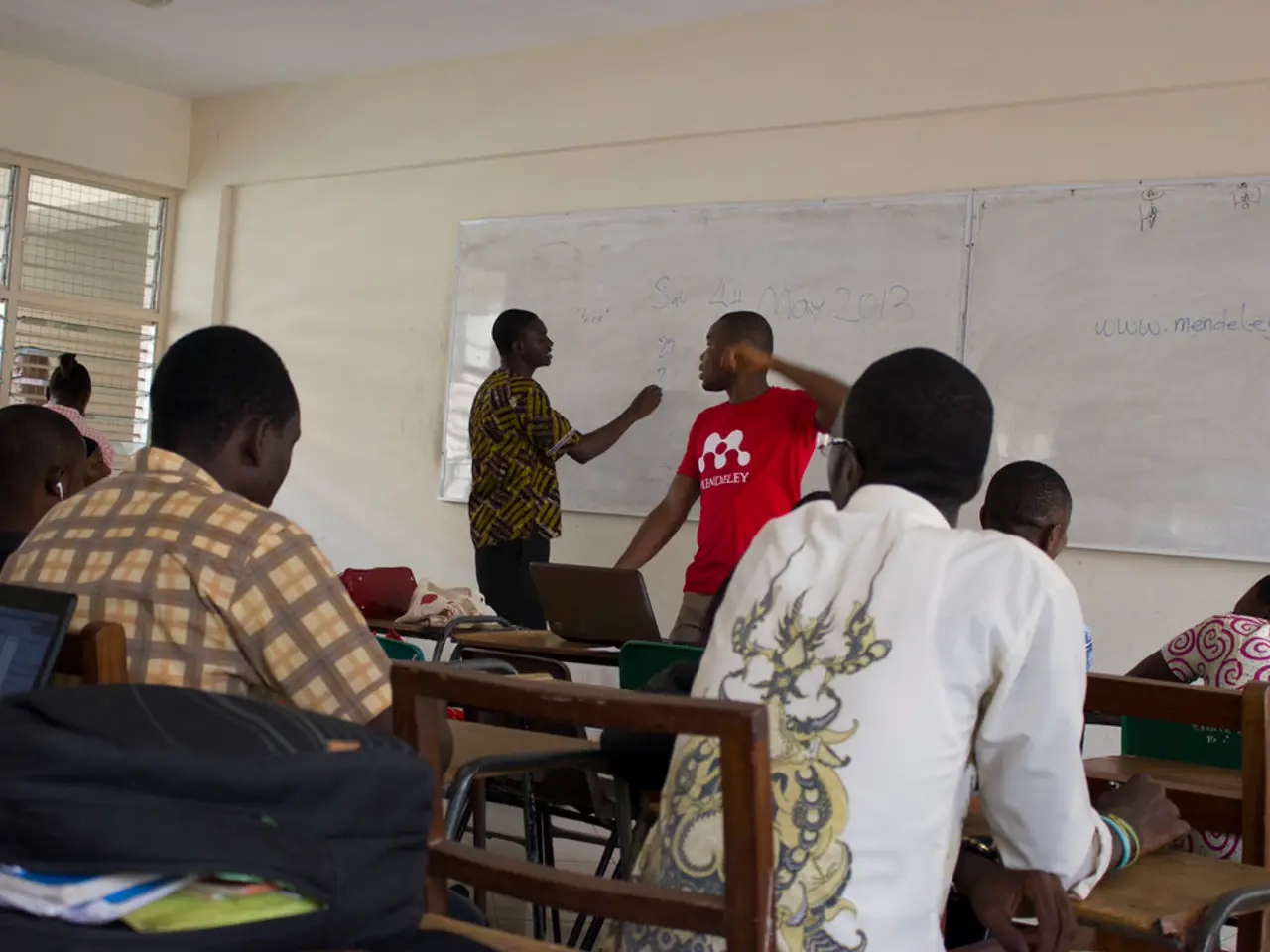Essential Mental Faculties for Academic Success in learners
In today's interconnected world, the importance of nurturing critical thinking skills in students cannot be overstated. At our school, we prioritise this development through the International Baccalaureate (IB) program, which challenges students to think critically and engage with diverse perspectives.
Communication plays a vital role in expressing ideas clearly and understanding others' perspectives. To this end, we focus on developing students' communication skills, encouraging them to express their ideas effectively and understand others' viewpoints.
Effective decision-making is another crucial skill for students. Key aspects of decision-making include establishing clear criteria for evaluating options, weighing short-term and long-term consequences, and considering possible outcomes. We empower students to make informed decisions by fostering their ability to evaluate different options, consider potential outcomes, and select the best course of action.
Analytical thinking is a powerful tool that allows students to break down complex information into smaller, manageable parts. By promoting analytical thinking, we enable students to approach problems methodically and identify solutions more effectively.
Reflective thinking encourages students to evaluate their thought processes and decision-making strategies. Key aspects of reflective thinking include examining personal assumptions and biases critically, integrating knowledge from different sources and past experiences, and applying insights gained through reflection to improve future actions.
Problem-solving is a fundamental skill that requires students to identify challenges, develop potential solutions, evaluate those options, and implement the best one. We encourage students to approach problems with an open mind, considering unconventional solutions and perspectives.
Critical thinking enhances students' ability to identify reliable sources and assess their credibility. By teaching students to question the information they encounter, we equip them with the tools they need to navigate the digital age with discernment.
To develop these critical thinking skills, we employ a variety of pedagogical approaches and practical activities. These strategies combine collaborative, creative, structured, and technology-supported learning methods.
One approach is the integration of the 4 C's of Critical Thinking: Critical Thinking, Creativity, Collaboration, and Communication. We encourage students to analyse facts, evaluate arguments, and make reasoned judgments (critical thinking). We foster creativity through brainstorming and open-ended problem-solving, allowing unconventional ideas. We promote collaborative group work where sharing diverse perspectives leads to richer solutions. We develop clear communication skills to express and defend ideas effectively and understand others’ viewpoints.
Active inquiry and questioning are also essential for fostering critical thinking. We cultivate a curious mindset by encouraging students to ask questions and seek evidence, fostering inquiry-based learning and reflective thinking. Assignments that prompt students to generate and test hypotheses engage them deeply in research and reasoned judgment processes.
We also utilise practical activities such as puzzle solving, debates and discussions, mind mapping, role-playing, and simulations to sharpen problem-solving and analytical thinking skills. These activities provide students with opportunities to apply critical thinking in realistic scenarios.
Collaborative learning and social interaction are also integral to our approach. Group-based mystery assignments or problem-solving tasks boost communication, active listening, and synthesis of diverse perspectives, reinforcing critical thinking and decision-making within a social context.
Structured thinking techniques, such as the Six Thinking Hats technique, are employed to promote open-mindedness and balanced judgment.
Lastly, we integrate technology and AI tools to deepen analysis, synthesis, and ethical reasoning. AI-driven assignments allow students to practice Socratic questioning, generate counterarguments, and evaluate AI-generated ideas, fostering intellectual growth and preparing students for real-world challenges.
By combining these strategies, educators can systematically develop students' critical thinking skills across multiple dimensions, including problem-solving, reflective and analytical thinking, decision-making, and effective communication. We believe that by fostering critical thinking, we are equipping our students with the tools they need to succeed in an ever-changing world.
[1] Hmelo-Silver, C. E. (2004). Problem-based learning: A critical review of the research literature. Review of Educational Research, 74(1), 67-118. [2] Slavin, R. E. (1990). Cooperative learning: Theory, research, and practice. American Psychologist, 45(5), 571-582. [3] De Bono, E. (1985). Six thinking hats. Harper & Row. [4] Herrmann, N. W. (1986). The whole brain model: Understanding and using the four types of minds. Ballantine Books.
- At our school, we reinforce the importance of developing students' communication skills, which are essential for expressing ideas clearly and understanding diverse perspectives, within the context of the International Baccalaureate (IB) program.
- We aim to empower students to make informed decisions by nurturing their ability to evaluate different options, consider potential outcomes, and select the best course of action, which are key aspects of effective decision-making.
- To encourage reflection and personal growth, we promote reflective thinking by teaching students to critically examine their thought processes, integrate knowledge from various sources, and apply insights gained from reflection to improve future actions.
- Active inquiry and questioning are essential for fostering critical thinking, so we cultivate a curious mindset by encouraging students to ask questions, seek evidence, and engage in inquiry-based learning to develop their problem-solving and analytical thinking skills.




